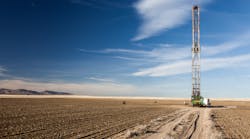A federal report released Wednesday by the Oil Spill Commission investigating the BP Deepwater Horizon disaster said both the oil and gas industry and the government were unprepared to respond to the massive deepwater oil spill, even though such a spill was foreseeable.
The Commission’s report found that errors and misjudgments by three major oil drilling companies—BP, Halliburton, and Transocean—played key roles in the disaster and that government regulation was ineffective and failed to keep pace with technology advancements in offshore drilling.
The report states since the Exxon Valdez oil spill in 1989, neither industry nor the government has made significant investments in spill-response research and development.
In addition to these findings, the report calls for several systemic reforms of both government and industry to prevent a similar, future disaster and says the oil and gas industry must adopt a “culture of safety.”
“Our exhaustive investigation finds that none of the major aspects of offshore drilling safety — not the regulatory oversight, not the industry safety standards, not the spill response practices — kept pace with the push into deepwater,” said commission Co-Chair William K. Reilly, in a prepared statement. “In effect, our nation was entirely unprepared for an inevitable disaster. Perhaps the only greater tragedy would be not implementing the reforms.”
Some of the key reforms called for by the commission include:
• The creation of an independent safety agency within the U.S. Department of Interior to oversee all aspects of offshore drilling safety.
• New advanced U.S. offshore drilling regulations and enforcement practices coupled with a “risk-based” regulatory approach that requires all offshore drilling companies to demonstrate they have thoroughly evaluated all risks involved in drilling a particular well and are prepared to address such risks.
• Broader consultations among federal agencies, including the Coast Guard and the National Oceanic Atmospheric Administration (NOAA), prior to leasing and exploration.
• Creation of a distinct environmental science office within the Interior headed by a chief scientist with specified environmental protection review responsibilities.
• Acceleration of scientific and technical research in all areas related to offshore drilling.
• Creation of a “Safety Institute” by the oil and gas industry, similar to organizations in other high-risk industries such as the Institute of Nuclear Power Operations, that would be aimed at developing, adopting, and enforcing standards of excellence.
• Improvement of spill response planning by both government and industry and better integration of state and local officials into spill planning and training.
• Government development of in-house expertise to effectively oversee well-containment operations and to accurately estimate flowrates following a blowout.
• Industry development of well-containment technologies that are rapidly deployable and must demonstrate their effectiveness in deepwater.
The commission says adequate and predictable funding for regulatory oversight is essential for these reforms to be effective and to meet the challenges of ensuring offshore safety and environmental protection. Therefore, the report calls for budgets for the regulatory agencies that oversee offshore drilling to come directly from fees paid by the companies that are being granted access to a publicly owned resource.
“The offshore energy industry should pay for the costs of its regulation, just as fees on the telecommunications industry support the Federal Communications Commission,” commission Co-Chair Bob Graham said in a prepared statement. “The oil and gas industry currently earns billions of dollars each year because private companies are privileged with access to valuable energy resources on the outer continental shelf owned by all Americans. It is only fair that industry, and not the American taxpayer, pay the costs of the government oversight needed to ensure the safety of those industry operation.”
In addition, the report says penalties paid by BP and other parties responsible for the oil spill should be primarily devoted to Gulf restoration, stating that the Gulf region will continue to be under stress as energy development continues. “Congress should dedicate 80 percent of any Clean Water Act civil and criminal penalties to long-term restoration of the Gulf of Mexico in partnership with the states,” the report states.
In all, the government estimates that more than 170 million gallons of oil spilled into the Gulf as a result of the Mancondo well blowout on April 20, 2010.
President Obama established the National Commission on the BP Deepwater Horizon Oil Spill and Offshore Drilling in May 2010, to determine the root causes of the disaster, evaluate containment and clean-up responses, and advise the president and the nation about how future energy exploration should take place responsibly in more challenging offshore and deepwater areas.
The commission’s full report is available at oilspillcommission.gov.

